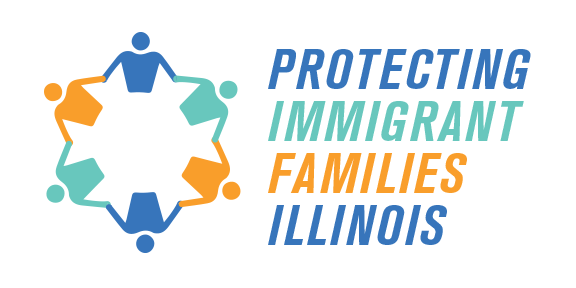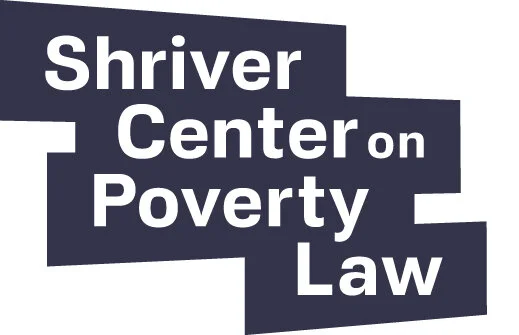Litigation
ILLINOIS
On September 24, 2019, the Shriver Center on Poverty Law and Legal Council for Health Justice, along with co-counsel Sidley Austin LLP, filed a lawsuit on behalf of Illinois Coalition for Immigrant and Refugee Rights and Cook County to halt the implementation of the public charge inadmissibility rule in Illinois. A preliminary injunction was granted on October 14, 2019 temporarily blocking the rule from being implemented in Illinois. The federal government appealed this state-wide preliminary injunction, but the Court of Appeals for the Seventh Circuit declined to lift the state-wide injunction on December 23, 2019.
Following the U.S Supreme Court decision to lift the nationwide injunction, the federal government filed an appeal asking the U.S Supreme Court to lift the Illinois statewide injunction. On February 21, 2020, the U.S Supreme Court ruled to remove the Illinois statewide injunction, permitting the public charge inadmissibility rule to go into effect in Illinois. Therefore, the public charge rule will be effective in Illinois beginning February 24, 2020 while litigation continues.
On May 19, 2020 the Federal District Court denied the Federal government’s motion to dismiss ICIRR and Cook County’s lawsuit against the public charge rule. In addition, the district court allowed ICIRR’s claim that the public charge rule is intentionally discriminatory, and permitted ICIRR to proceed with extra discovery to potentially uncover additional evidence of the discriminatory motive.
On June 10, 2020, the 7th Circuit Court of Appeals affirmed the District Court’s issuance of a preliminary statewide injunction in Illinois. The 7th Circuit Court recognized the potential harmful public health repercussions of the public charge. Unfortunately, the 7th Circuit Court’s decision does not put the injunction back in place due to the U.S Supreme Court’s earlier ruling to lift the preliminary injunction.
Due to the 2nd Circuit Court of Appeals order to limit the scope of the temporary preliminary injunction for the duration of the national emergency due to COVID-19 to only three states: New York, Connecticut and Vermont, the final public charge went into effect in Illinois on August 12, 2020. On September 11, 2020 the three-judge panel of the Second Circuit Court of Appeals removed the preliminary injunction for New York, Connecticut and Vermont, allowing the public charge in all 50 states.
On November 2, 2020, a Federal District Judge for the Northern District Court of Illinois issued an order stating that the DHS final public charge rule violates the Administrative Procedure Act (APA) as it is overly broad, and the DHS failed to consider “significant, predictable collateral consequences”, when it issued the rule. The judge ordered that the final public charge rule should be vacated in Illinois and nationwide. In the same order, the judge stated that ICIRR can continue to litigate its Equal Protection Clause claim- asserting that the rule was created with discriminatory intent. USCIS has yet to provide guidance. Please read the order here.
On November 3, 2020, the Seventh Circuit Court of Appeals stayed the Northern District Court of Illinois’ order, allowing the rule to remain in effect.
On March 9, 2021, the Biden administration filed motions to dismiss the Trump administration’s defense of the public charge rule. The Seventh Circuit Court of Appeals effectively dismissed the federal government appeal, putting back in place the Northern District Court of Illinois’s vacateur ruling, permanently blocking the public charge rule nationwide. This signifies that the 1999 public charge guidance is restored.
NATIONWIDE
Three nationwide injunctions were granted in October 2019, temporarily stopping the rule from being implemented across the country entirely. These judicial orders were appealed by the federal government. Two of the nationwide injunctions, the ones put in place by the district courts in Washington and Maryland were lifted in December 2019. The remaining nationwide injunction put in place by the district court in New York was lifted by the Supreme Court on January 27, 2020, giving way for the “public charge” inadmissibility rule to be implemented. USCIS announced that the agency will apply the new public charge inadmissibility rule to applications and petitions submitted on or after February 24, 2020 nationwide (including Illinois).
On July 29, 2020, U.S District Court for the Southern District of New York issued a NEW temporary injunction blocking the public charge rule nationwide (including Illinois) for the duration of the declared national emergency related to the COVID-19 pandemic, stating that the public charge rule could not be implemented or enforced during the COVID-19 national emergency. USCIS issued guidance on the temporary injunction here.
The court also issued a nationwide preliminary injunction for the Department of State (DOS) public charge rule which affects persons applying for visas from abroad and an injunction blocking the Health Insurance Proclamation.
On August 12, 2020, the Second Circuit Court of Appeals temporarily limited the scope of the temporary preliminary injunction to only three states: New York, Connecticut, and Vermont. This means that the temporary preliminary injunction for the duration of the national emergency due to COVID-19 was only in place in those states, AND NOT the rest of the nation while the ultimate decision of the preliminary injunction was determined by a three-judge panel. Please read the order here.
On September 11,2020, the three-judge panel of the Second Circuit Court of Appeals lifted the preliminary injunction in place in New York, Connecticut and Vermont stating the district court did not have jurisdiction to order the original temporary injunction on July 29, 2020. Please read the order here.
On November 2, 2020, a Federal District Judge for the Northern District Court of Illinois issued an order stating that the DHS final public charge rule violates the Administrative Procedure Act (APA) as it is overly broad, and the DHS failed to consider “significant, predictable collateral consequences”, when it issued the rule. The judge ordered that the final public charge rule should be vacated in Illinois and nationwide. In the same order, the judge stated that ICIRR can continue to litigate its Equal Protection Clause claim- asserting that the rule was created with discriminatory intent. USCIS has yet to provide guidance. Please read the order here.
On November 3, 2020, the Seventh Circuit Court of Appeals in Illinois stayed the Northern District Court of Illinois’ order. For the time being, the public charge rule remains in effect.
On December 2, 2020 the Ninth Circuit Court of Appeals in California upheld two preliminary injunctions originally placed by federal judges. The affirmation of these preliminary injunctions places a block of the public charge to certain states involved in the lawsuit. Read the order here.
On December 16, 2020 The Department of Justice withdrew its public charge rule “Inadmissibility and Deportability on Public Charge Grounds”.
On February 22, 2021, the United States Supreme Court agreed to hear the federal government’s appeal to the decisions made in the Second Circuit Court of Appeals. This does not change the current status of the public charge rule, it continues to be in effect nationwide.
On March 9, 2021, the Biden administration filed motions to dismiss the Trump administration’s defense of the public charge rule. The Seventh Circuit Court of Appeals effectively dismissed the federal government appeal, putting back in place the Northern District Court of Illinois’s vacateur ruling, permanently blocking the public charge rule nationwide. This signifies that the 1999 public charge guidance is restored.
Texas filed a lawsuit challenging the Biden administration’s final public charge rule that took effect on December 23, 2022. The lawsuit was filed in the United States District Court for the Southern District of Texas. In the lawsuit, Texas asked the court to hold the 2022 Biden final public charge rule unlawful, and issue a permanent injunction that would block it from taking effect.
Despite Texas’ claims, there are solid grounds for a court to uphold the 2022 Biden final public charge rule. The Biden administration took the proper notice and comment steps in issuing the final rule; the final rule is consistent with the policy in field guidance that was in effect for 20 years; and the field guidance itself is based on a century of policy and practice that preceded it.
In addition, on January 9, 2023, the U.S. Supreme Court declined to hear the motion brought by the Attorney General of Texas and 13 other states to intervene in litigation (Texas v. Cook County, Illinois where ICIRR is co-plaintiff) in which the Trump 2019 public charge regulation was struck down nationwide. The lower courts denied Texas’s belated motion to intervene. Texas’s petition asked the U.S. Supreme Court to review those lower court decisions, However, the Supreme Court decided notto hear the request.
Last Updated 1/18/2023
Illinois Advocates Disappointed by SCOTUS Decision that Maintains Public Charge Rule in Effect
FEBRUARY 22, 2021
CHICAGO- Today, the Supreme Court of the United States agreed to hear the federal government's appeal of the early victories obtained against the public charge rule in New York, Vermont and Connecticut. The Court has not yet decided whether to hear an appeal of the same early victory in Illinois…
A Win for Immigrant Communities Nationwide: Illinois Advocates Commend Federal Court Ruling Striking Down Public Charge Rule
November 2, 2020
CHICAGO-The Protecting Immigrant Families – Illinois coalition applauds the decision made by the Northern District Court of Illinois to strike down the US Department of Homeland Security (DHS) regulations on public charge for violating the Administrative Procedure Act (APA), stating that the rule…
Two Significant Victories in the Public Charge Litigation
June 12, 2020
CHICAGO—Court Order Blocking Implementation of Public Charge Rule in Illinois is Upheld on Appeal and Lower Court Upholds ICIRR’s Equal Protection Clause Claim…
Federal Court Grants Illinois Injunction Against Public Charge Rule
October 15, 2019
CHICAGO—The Shriver Center on Poverty Law applauds the decision of the Northern District Court of Illinois to grant a preliminary injunction blocking the Trump Administration’s…
Cook County & Illinois Coalition for Immigrant and Refugee Rights File Lawsuit to Block Discriminatory Trump Administration Action
September 24, 2019
The “public charge” rule change proposed by the US Department of Homeland Security would result in devastating harm to vulnerable individuals in Cook County. See graphic below, describing the harm that the public charge rule change would do.
Public Charge Litigation Tracker
Updated 12/01/20
See the records for the Public Charge litigation.
Mayor Emanuel Submits Comment in Opposition to President Trump
December 11, 2018
Mayor Emanuel, City of Chicago Submit Comment in Opposition to President Trump's 'Public Charge' Rule Change
Protecting Immigrant Families–Illinois Applauds Cook County Board’s Resolution
October 18, 2018
Coalition of Advocates Calls on All Elected Officials in Illinois to Fight this Cruel Attack on Immigrant Families








